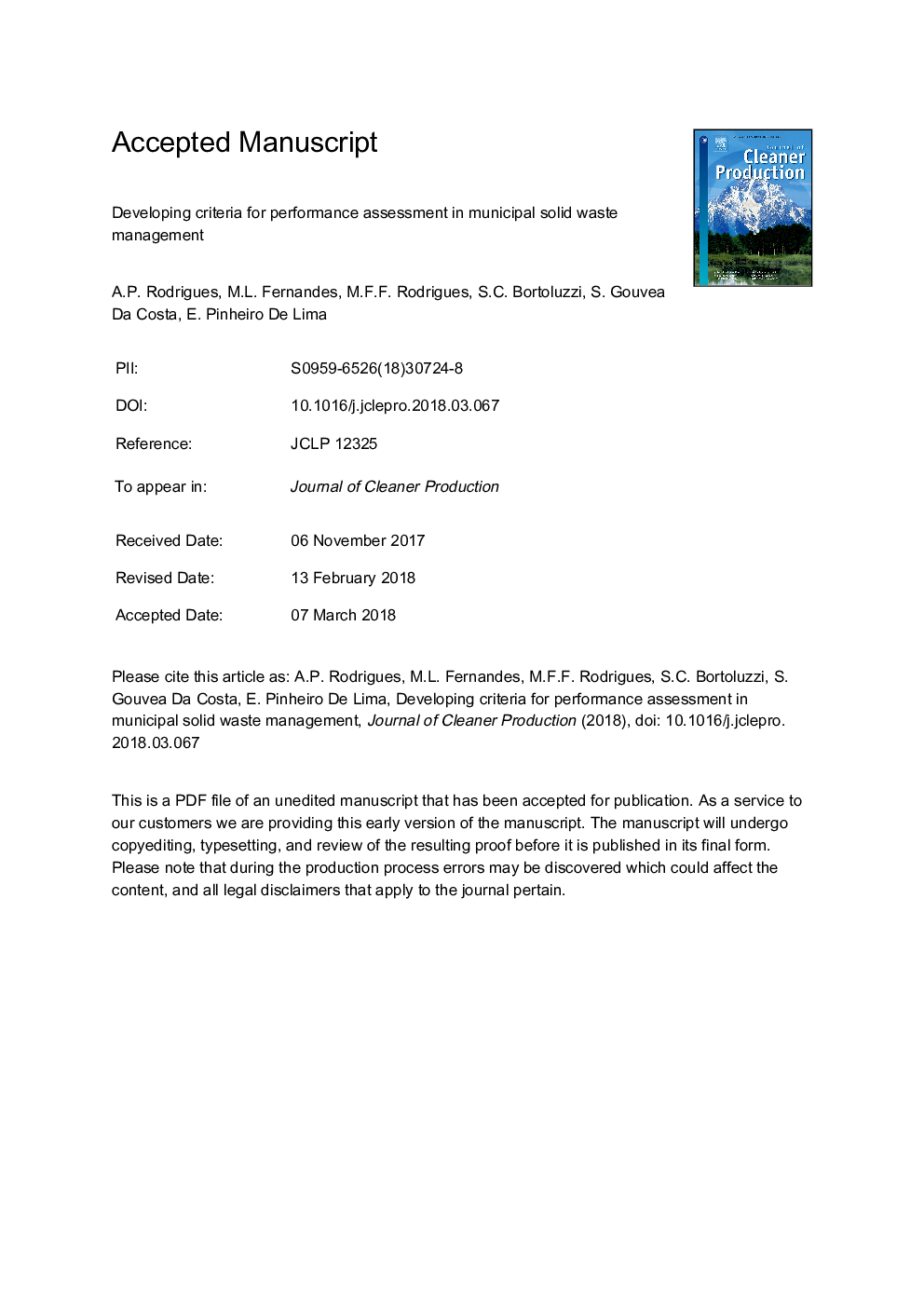| Article ID | Journal | Published Year | Pages | File Type |
|---|---|---|---|---|
| 8096286 | Journal of Cleaner Production | 2018 | 25 Pages |
Abstract
Sustainable development is being approached as new economic paradigm that establishes a general context for organizations and institutions develop their strategies and processes. This is particularly true for public administration, where a change process is being taking place towards the development of sustainable and smart cities. Complex operations networks and closed-loop supply chains define structures for managing the flow of materials, energy and information. This paper addresses the problem of managing solid waste in small cities, and based on an in depth case study that is used to illustrate the application of a performance measurement assessment exercise. The development of the assessment model is based on an adaptation of the methodology for Multi-criteria Decision Aid - Constructivist (MCDA-C), that allows the comparison of the proposed strategic objectives for solid waste management and the available performance information. Experts play an important role in aligning objectives with the performance measurement system, as the performance indicators could be objectively defined, and integrated to the assessment model, which produces at the end a global score that could be used for benchmarking, particularly for tracking the evolution over the years. The model is applied in the context of a small city that formally addresses sustainability in its institutional strategic plan. The model is tailor-made for the application case, and it is verified that the sustainability index for assessing the solid waste management obtained a score of 30.5 points, considering as reference the anchorage of intervals with performance "Neutral" 0 (zero) points and "Good” 100 (one hundred) points. It is identified objective opportunities for improvement in areas associated to governance and operational efficiency. It could be concluded that the performance assessment of the municipal solid waste management becomes an important element to ensure compliance, and to realize the sustainability strategy plan. Besides that, it provides information to control and an integrated management of the key performance dimensions, mainly due to the identification of factors that connect measures to diagnosis and improvement processes. Based on a case study, a performance assessment could take place and shows its value to the practice of municipal solid waste management.
Related Topics
Physical Sciences and Engineering
Energy
Renewable Energy, Sustainability and the Environment
Authors
A.P. Rodrigues, M.L. Fernandes, M.F.F. Rodrigues, S.C. Bortoluzzi, S.E. Gouvea da Costa, E. Pinheiro de Lima,
